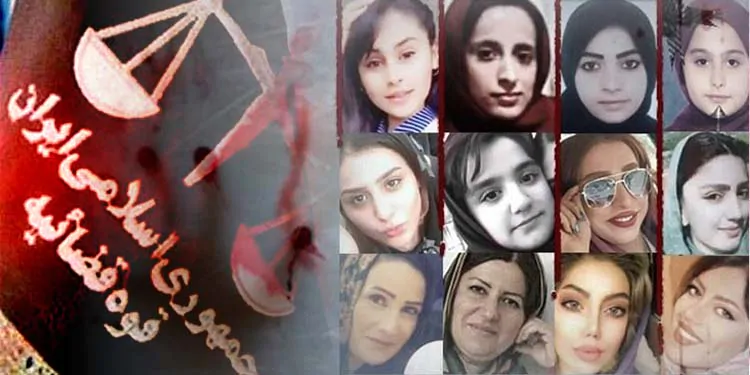According to Pooye Maddai, an Iranian researcher, during the investigation of her dissertation, a man accused of killing his wife replied in the corner of a questionnaire, “According to Article 630 of the Islamic Penal Code (Sharia), I was allowed to kill my wife.” He was a teacher and had a bachelor’s degree. He was right, According to Article 630 of the (former) Islamic Penal Code, if a husband sees his wife and a man while committing adultery and kills them, he is exempt from retaliation.
While knives, sickles, or any other weapons in all their forms are in the hands of a father, brother, husband or another family member, preventing more murders of women requires that misogynist thought be condemned and destroyed. Under the current regime, the prevailing medieval view is that officially and in all laws, women are second-class citizens and subservient to men. This idea is part of the Iranian theocracy’ ideological pillar in the basis of all policies. For example, in the case of compulsory veiling, violation of the law of compulsory veiling is considered a matter of national security and carries the heaviest penalties.
What is an ‘honour killing’?
It is the killing of a member of a family who is perceived to have brought dishonour upon relatives. The most common reasons are that the victim:
– refused to enter into an arranged marriage
– was the victim of a sexual assault or rape
– had sexual relations outside marriage, even if only alleged
But killings can be carried out for more trivial reasons, like dressing in a way deemed inappropriate or displaying behaviour seen as disobedient.
If the victim is Mahdoor al-Dam, the murderer will not be held accountable seriously or retaliated against (based Islamic Penal Code). Mahdoor al-Dam is someone who is allowed to be killed; from a relationship outside of marriage (e.g., adultery or sexual orientation), and up to such crimes as murder. As an Arabic word, it means that life is vain and the person is not protected by law. The article 302 of the Iranian Islamic Penal Code, approved in 1992, refers to cases such as killing for sexual behaviors out of marriage, in which the accused of murder is saved from retribution and blood money. This makes honor killing possible.
In May 2020, the tragic story of a young girl, Romina Ashrafi, was widely shared on social media and broke the hearts of millions of Iranians. Just 13 years old, Ashrafi was beheaded by her own father with a sickle while she slept. She lived with her parents in a village in the north of Iran and ran away with a man whom she wanted to marry but whose family opposed the marriage. The police found her and handed over to her father. That same night, while she was sleeping, her father cut off her head off to maintain his “honor.” This story was shared by hundreds of thousands of Iranians on social media, with users reacting strongly, publishing photos, and writing about her brutal murder. As a result of this tragedy, Iranian social media played a central role in creating greater awareness about honor killings in the country.
After Ashrafi’s death, the parliament passed the Law to Protect Children and Juveniles. The law had been pending for over a decade. The Guardian Council, a 12-member body of clerics and jurists, must approve all laws passed by the parliament to ensure they are in keeping with Iran’s Constitution and Islamic jurisprudence. Over a period of a year, the Guardian Council had reportedly weakened the bill in many ways and rejected it twice after it was passed by parliament because they believed it compromised the authority of parents over their children. But in the current political moment, the Guardian Council allowed the bill through.
The law, while weakened, is still a positive development. Among its many provisions is Article 17, which makes it a crime for any state authorities charged with protecting children to fail to intervene in cases when a teenager or child is at risk of violence.
Another key provision of the law grants courts more power to deprive abusive fathers of guardianship rights. This change is essential because Iran’s form of paternal guardianship grants fathers near absolute dominion over their children, especially their daughters. In case of the death of the child, it is the father that legally owns the blood-retribution (a form of “life for a life” punishment), leading many men to believe it is not a crime for them to kill their children. This sense of entitlement was displayed in 2002 in the city of Ahvaz when Maryam, just 7 years old, was decapitated by her father when he became suspicious that she had been raped by her uncle. While being arrested, Maryam’s father was still holding her severed head and reportedly said, “Just let me be! It was my own child, and I cut off her head. I own her blood rights, and there is no one else pressing any charges.”
Zhina Muddaris Gorji, women’s rights activist in Sanandaj, believes poverty is among the factors that drive the killings. “Honor killing is caused by several factors…poverty is one of the most important factors behind this problem,” Gorji said. “In spite of that, there are legal and cultural issues such as, related to poverty; some families force their children into early marriage without their consent.”
Honor killings in Iran are on the rise, but social activists don’t have a safe space to discuss them. Activists for women’s rights are accused of tarnishing the image of Islam, violating public culture, and acting against national security in some cases, and their activities are restricted.








